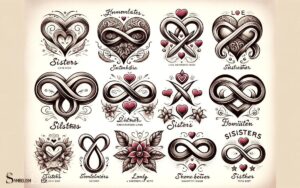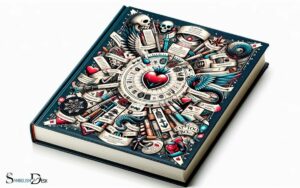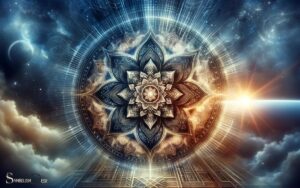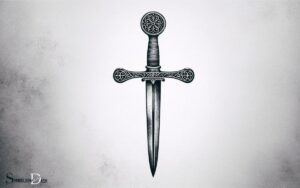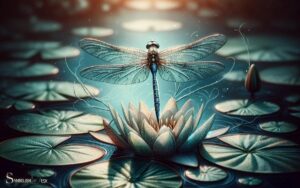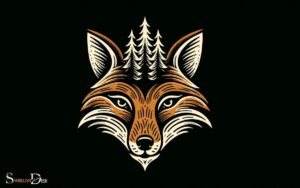What Does a Dragon Tattoo Symbolize? Wisdom!
A dragon tattoo symbolizes a range of attributes including strength, wisdom, protection, and spiritual guidance. It is a powerful emblem in various cultures, often representing a guardian or a master of elements.
Dragon tattoos carry a rich tapestry of meanings, often influenced by cultural perspectives:
- Strength and Power: Dragons are often depicted as powerful and fearsome creatures, hence a dragon tattoo may signify the wearer’s strength or desire for power.
- Wisdom: In some cultures, dragons are wise creatures that symbolize knowledge and understanding.
- Protection: Dragons are seen as protectors in various mythologies, so a dragon tattoo might express a protective nature.
- Spiritual Guidance: For some, dragons represent a connection to the spiritual world, guiding them on their life’s journey.
For example, in Eastern cultures, a dragon is seen as a benevolent creature that brings good luck and fortune, while in Western folklore, dragons are often associated with danger and darkness.
Dragon tattoos are a timeless choice that embody an individual’s quest for power, wisdom, and protection, transcending cultural boundaries.
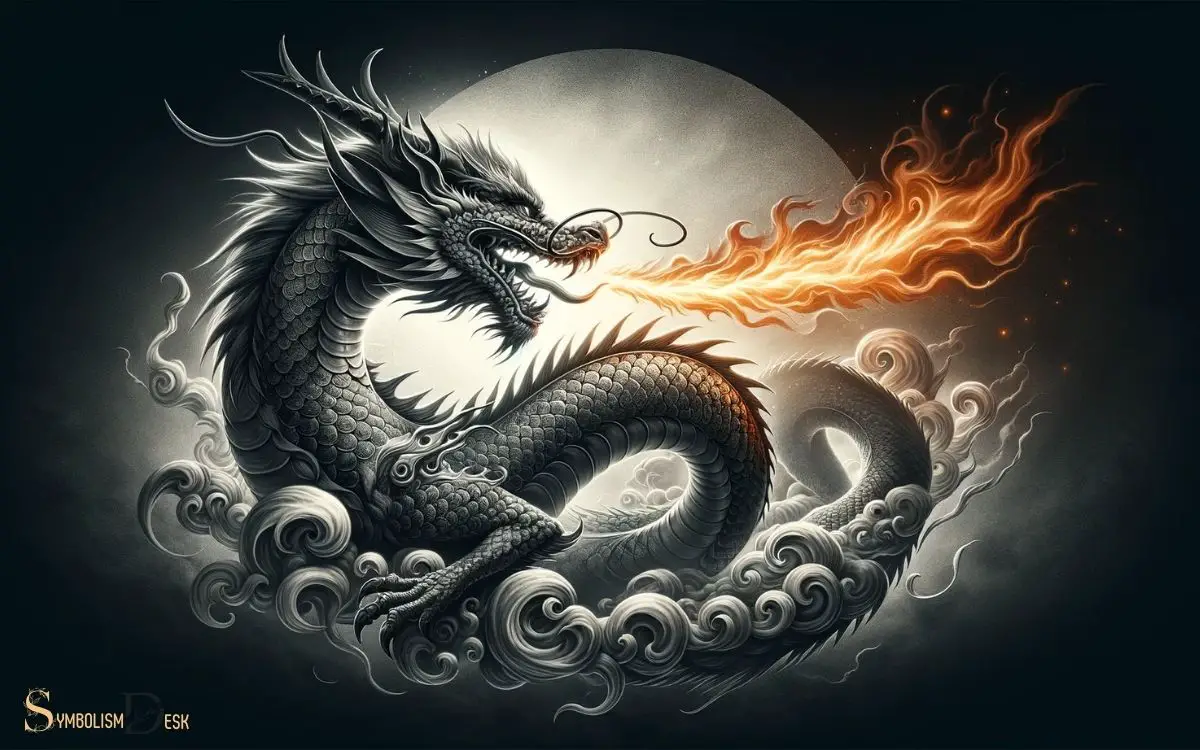
Key Takeaway
Mythological Origins of Dragon Tattoos
One might trace the mythological origins of dragon tattoos to ancient civilizations across Asia and Europe.
In these cultures, dragons often represented power, strength, and protection. The dragon was a symbol of both good and evil, embodying the duality of nature.
- In Asian mythology, dragons were revered as benevolent forces, associated with water and agriculture, bringing rain and fertility to the land.
- On the other hand, European folklore often depicted dragons as fearsome beasts to be feared and vanquished.
Over time, the dragon tattoo has come to symbolize courage, wisdom, and resilience. For many, it serves as a reminder of their inner strength and ability to overcome challenges.
This deep-rooted symbolism has made dragon tattoos a popular choice for those seeking to express their inner fortitude and determination.
Cultural Significance of Dragon Tattoos
The cultural significance of dragon tattoos varies across different societies and has been cherished for centuries, often featuring in rituals, celebrations, and art forms.
- In Chinese culture, dragons symbolize power, strength, and good luck. They’re seen as protective and benevolent creatures, representing the emperor and prosperity.
- In Japanese tradition, dragons are associated with wisdom, longevity, and transformation. They’re often depicted as water deities and are believed to bring rainfall for a good harvest.
- In European folklore, dragons embody both good and evil, with tales of heroic knights slaying menacing dragons. Celtic beliefs view dragons as guardians of hidden knowledge and treasure.
Understanding the diverse cultural interpretations of dragon tattoos enhances the appreciation of this timeless symbol.
Symbolism of Dragon Tattoos in Eastern Cultures
In Eastern cultures, dragon tattoos symbolize power, wisdom, and protection. The dragon is revered as a symbol of strength and good fortune, making it a popular choice for tattoos.
In these cultures, the dragon is often associated with the elements of nature, such as water, earth, and air, representing harmony and balance.
The dragon’s wisdom and intelligence are also highly regarded, making it a symbol of guidance and knowledge.
Additionally, the dragon is seen as a guardian, offering protection and warding off negative forces.
People seeking safety may find solace in the symbolism of a dragon tattoo, believing it will provide them with strength and protection in their daily lives.
As a result, many individuals in Eastern cultures choose to adorn themselves with dragon tattoos as a means of seeking these positive attributes.
Modern Interpretations of Dragon Tattoos
Amid contemporary tattoo culture, dragon tattoos continue to hold significance as symbols of strength, resilience, and individuality.
Here are some modern interpretations of dragon tattoos:
Pop Culture Influences
- Many individuals get dragon tattoos influenced by popular media such as movies, TV shows, and video games, connecting their love for these forms of entertainment with the powerful and mystical nature of dragons.
Artistic Expression
- Some people choose dragon tattoos as a form of artistic expression, incorporating unique designs and intricate details to create a personalized symbol of creativity and self-expression.
As the popularity of dragon tattoos continues to grow, it’s important to understand the personal meanings and individualized interpretations that people attribute to these timeless symbols.
Personal Meanings and Individualized Dragon Tattoos
Though influenced by various factors, individuals often attribute personal meanings to their dragon tattoos, reflecting their unique experiences and beliefs.
For some, a dragon tattoo may symbolize strength, resilience, and the ability to overcome adversity. Others may see it as a representation of wisdom, power, and protection.
Personal experiences, such as triumph over difficult circumstances or a deep connection to a particular culture, can also shape the meaning behind a dragon tattoo.
Some individuals may choose to incorporate specific elements into their dragon tattoos, such as flowers, symbols, or colors, to further personalize the design and imbue it with additional significance.
Ultimately, the personal meanings of dragon tattoos are as diverse as the individuals who wear them, serving as a powerful form of self-expression and a reflection of their innermost beliefs and experiences.
Conclusion
Dragon tattoos hold diverse meanings and symbolism across different cultures and individuals. Just like the mythical creature itself, these tattoos can represent strength, power, and protection, as well as personal growth and transformation.
For example, a woman getting a dragon tattoo after overcoming a difficult period in her life can symbolize her newfound strength and resilience.
Ultimately, dragon tattoos are a powerful way for people to express their unique stories and experiences through body art.

